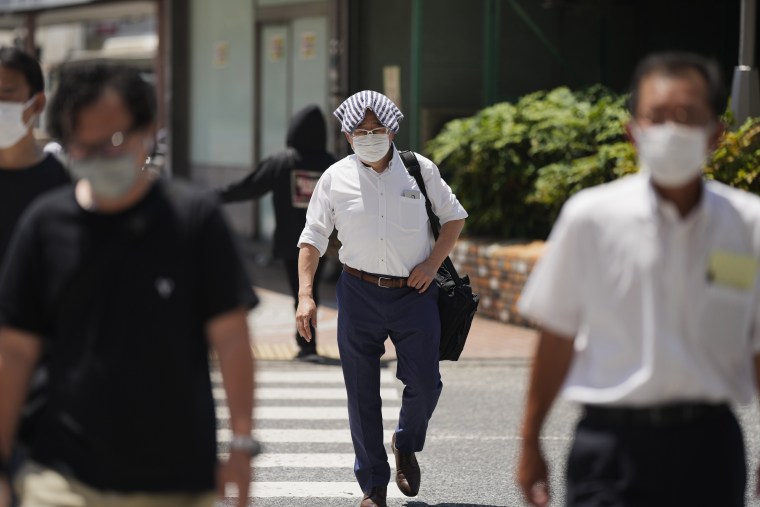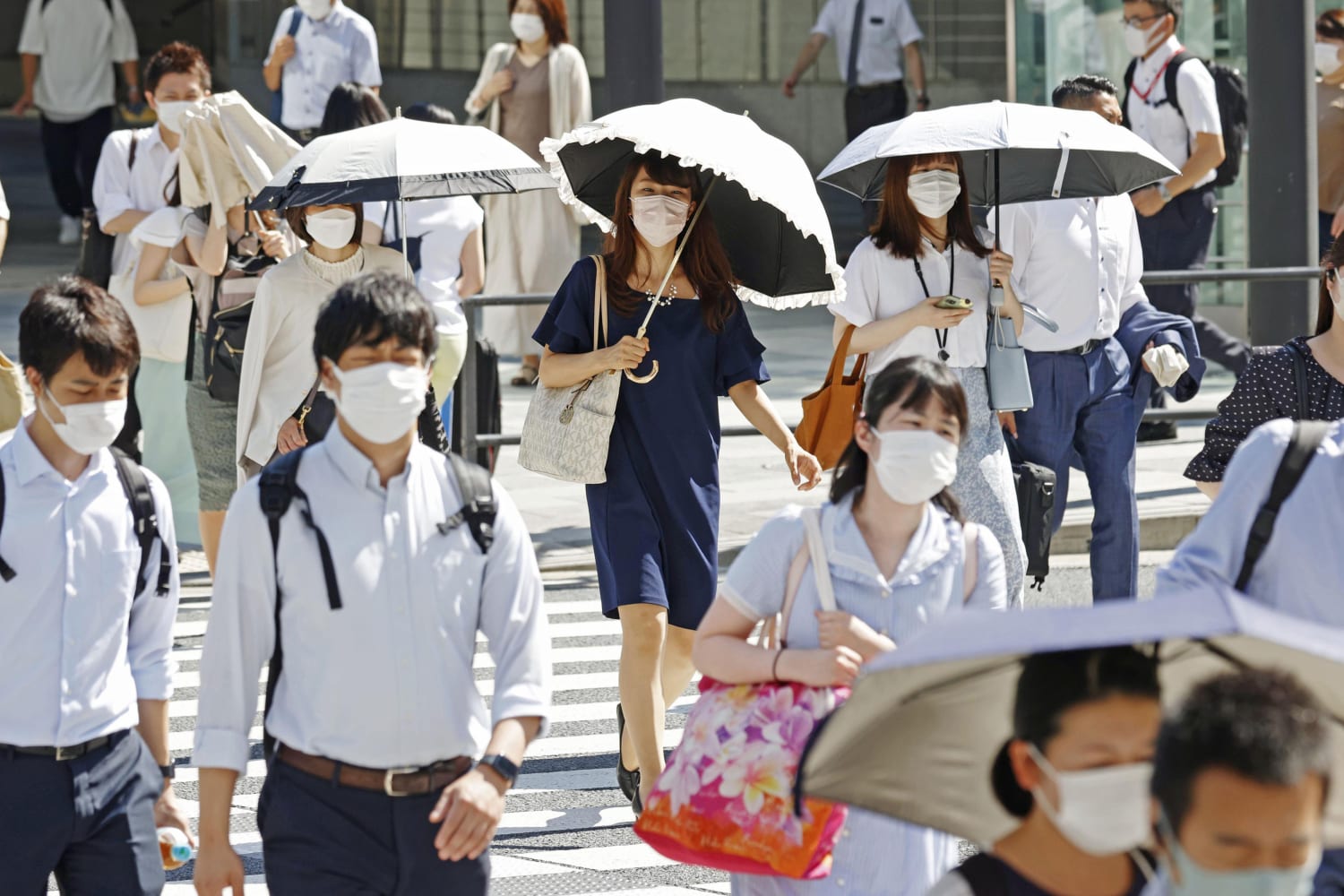TOKYO — The Japanese government warned of possible power shortages Monday in the Tokyo region, asking people to conserve energy as the country endures an unusually intense heat wave.
Weather officials have announced the earliest end to the annual summer rainy season since the Japan Meteorological Agency began keeping records in 1951. The rains usually temper summer heat, often well into July.
Download the NBC News app for breaking news and politics
The economy and industry ministry urged people living in the region serviced by the Tokyo Electric Power Co. to conserve power in the afternoon, especially when demand peaks at 4-5 p.m.
Kaname Ogawa, director of electricity supply policy at the ministry, said electricity demand Monday was bigger than expected because the temperature is higher than Sunday’s forecast.
“We are struck by unusual heat for the season,” Ogawa said. “Please cooperate and save as much power as possible.”
Ogawa, however, said people should use air conditioning appropriately and take precautions against heat stroke.

TEPCO is expecting contributions from the Tohoku Electric Power Co., which serves Japan’s northern prefectures, to help ease the crunch.
The Japanese archipelago has seen record-high temperatures for June in some areas. In Isezaki, north of Tokyo, the temperature rose to 104.4 degrees Fahrenheit on Saturday, the highest ever for June. The temperature in downtown Tokyo rose to nearly 95F on Monday, higher than the forecast Sunday of 93F.
With humidity at about 44 percent, temperatures felt still warmer.
With hot air coming from a powerful high atmospheric pressure system stalled over the Pacific Ocean, high temperatures are expected until early July, the meteorological agency said.
More than 250 people were taken to hospitals in Tokyo over the weekend for treatment of heat stroke, according to the Mainichi newspaper.
The power supply is relatively tight after Japan idled most of its nuclear reactors after 2011 meltdowns in Fukushima. It also has been closing down old coal plants to meet promises for reducing carbon emissions.
Japan also faces a potential shortage of fossil fuel imports amid sanctions against Russia over its invasion of Ukraine.
Source: | This article originally belongs to Nbcnews.com










